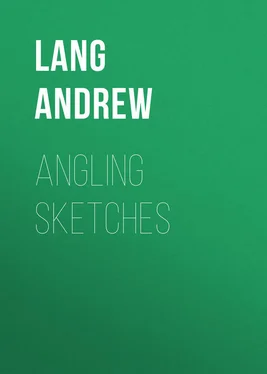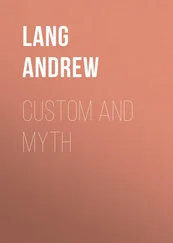Andrew Lang - Angling Sketches
Здесь есть возможность читать онлайн «Andrew Lang - Angling Sketches» — ознакомительный отрывок электронной книги совершенно бесплатно, а после прочтения отрывка купить полную версию. В некоторых случаях можно слушать аудио, скачать через торрент в формате fb2 и присутствует краткое содержание. Жанр: foreign_antique, foreign_prose, на английском языке. Описание произведения, (предисловие) а так же отзывы посетителей доступны на портале библиотеки ЛибКат.
- Название:Angling Sketches
- Автор:
- Жанр:
- Год:неизвестен
- ISBN:нет данных
- Рейтинг книги:3 / 5. Голосов: 1
-
Избранное:Добавить в избранное
- Отзывы:
-
Ваша оценка:
- 60
- 1
- 2
- 3
- 4
- 5
Angling Sketches: краткое содержание, описание и аннотация
Предлагаем к чтению аннотацию, описание, краткое содержание или предисловие (зависит от того, что написал сам автор книги «Angling Sketches»). Если вы не нашли необходимую информацию о книге — напишите в комментариях, мы постараемся отыскать её.
Angling Sketches — читать онлайн ознакомительный отрывок
Ниже представлен текст книги, разбитый по страницам. Система сохранения места последней прочитанной страницы, позволяет с удобством читать онлайн бесплатно книгу «Angling Sketches», без необходимости каждый раз заново искать на чём Вы остановились. Поставьте закладку, и сможете в любой момент перейти на страницу, на которой закончили чтение.
Интервал:
Закладка:
Andrew Lang
Angling Sketches
DEDICATION
TO MRS HERBERT HILLS
‘NO FISHER
BUT A WELL-WISHER
TO THE GAME.’
IN MEMORY OF PLESANT DAYS AT CORBY
PREFACE
Several of the sketches in this volume have appeared in periodicals. “The Bloody Doctor” was in Macmillan’s Magazine , “The Confessions of a Duffer,” “Loch Awe,” and “The Lady or the Salmon?” were in the Fishing Gazette , but have been to some extent re-written. “The Double Alibi” was in Longman’s Magazine . The author has to thank the Editors and Publishers for permission to reprint these papers.
The gem engraved on the cover is enlarged from a small intaglio in the collection of Mr. M. H. N. STORY-MASKELYNE, M.P. Such gems were recommended by Clemens of Alexandria to the early Christians. “The figure of a man fishing will put them in mind of the Apostle.” Perhaps the Greek is using the red hackle described by Ælian in the only known Greek reference to fly-fishing.
NOTE TO NEW EDITION
The historical version of the Black Officer’s career, very unlike the legend in “Loch Awe,” may be read in Mr. Macpherson’s Social Life in the Highlands .
THE CONFESSIONS OF A DUFFER
These papers do not boast of great sport. They are truthful, not like the tales some fishers tell. They should appeal to many sympathies. There is no false modesty in the confidence with which I esteem myself a duffer, at fishing. Some men are born duffers; others, unlike persons of genius, become so by an infinite capacity for not taking pains. Others, again, among whom I would rank myself, combine both these elements of incompetence. Nature, that made me enthusiastically fond of fishing, gave me thumbs for fingers, short-sighted eyes, indolence, carelessness, and a temper which (usually sweet and angelic) is goaded to madness by the laws of matter and of gravitation. For example: when another man is caught up in a branch he disengages his fly; I jerk at it till something breaks. As for carelessness, in boyhood I fished, by preference, with doubtful gut and knots ill-tied; it made the risk greater, and increased the excitement if one did hook a trout. I can’t keep a fly-book. I stuff the flies into my pockets at random, or stick them into the leaves of a novel, or bestow them in the lining of my hat or the case of my rods. Never, till 1890, in all my days did I possess a landing-net. If I can drag a fish up a bank, or over the gravel, well; if not, he goes on his way rejoicing. On the Test I thought it seemly to carry a landing-net. It had a hinge, and doubled up. I put the handle through a button-hole of my coat: I saw a big fish rising, I put a dry fly over him; the idiot took it. Up stream he ran, then down stream, then he yielded to the rod and came near me. I tried to unship my landing-net from my button-hole. Vain labour! I twisted and turned the handle, it would not budge. Finally, I stooped, and attempted to ladle the trout out with the short net; but he broke the gut, and went off. A landing-net is a tedious thing to carry, so is a creel, and a creel is, to me, a superfluity. There is never anything to put in it. If I do catch a trout, I lay him under a big stone, cover him with leaves, and never find him again. I often break my top joint; so, as I never carry string, I splice it with a bit of the line, which I bite off, for I really cannot be troubled with scissors and I always lose my knife. When a phantom minnow sticks in my clothes, I snap the gut off, and put on another, so that when I reach home I look as if a shoal of fierce minnows had attacked me and hung on like leeches. When a boy, I was – once or twice – a bait-fisher, but I never carried worms in box or bag. I found them under big stones, or in the fields, wherever I had the luck. I never tie nor otherwise fasten the joints of my rod; they often slip out of the sockets and splash into the water. Mr. Hardy, however, has invented a joint-fastening which never slips. On the other hand, by letting the joint rust, you may find it difficult to take down your rod. When I see a trout rising, I always cast so as to get hung up, and I frighten him as I disengage my hook. I invariably fall in and get half-drowned when I wade, there being an insufficiency of nails in the soles of my brogues. My waders let in water, too, and when I go out to fish I usually leave either my reel, or my flies, or my rod, at home. Perhaps no other man’s average of lost flies in proportion to taken trout was ever so great as mine. I lose plenty, by striking furiously, after a series of short rises, and breaking the gut, with which the fish swims away. As to dressing a fly, one would sooner think of dressing a dinner. The result of the fly-dressing would resemble a small blacking-brush, perhaps, but nothing entomological.
Then why, a persevering reader may ask, do I fish? Well, it is stronger than myself, the love of fishing; perhaps it is an inherited instinct, without the inherited power. I may have had a fishing ancestor who bequeathed to me the passion without the art. My vocation is fixed, and I have fished to little purpose all my days. Not for salmon, an almost fabulous and yet a stupid fish, which must be moved with a rod like a weaver’s beam. The trout is more delicate and dainty – not the sea-trout, which any man, woman, or child can capture, but the yellow trout in clear water.
A few rises are almost all I ask for: to catch more than half a dozen fish does not fall to my lot twice a year. Of course, in a Sutherland loch one man is as good as another, the expert no better than the duffer. The fish will take, or they won’t. If they won’t, nobody can catch them; if they will, nobody can miss them. It is as simple as trolling a minnow from a boat in Loch Leven, probably the lowest possible form of angling. My ambition is as great as my skill is feeble; to capture big trout with the dry fly in the Test, that would content me, and nothing under that. But I can’t see the natural fly on the water; I cannot see my own fly,
Let it sink or let it swim.
I often don’t see the trout rise to me, if he is such a fool as to rise; and I can’t strike in time when I do see him. Besides, I am unteachable to tie any of the orthodox knots in the gut; it takes me half an hour to get the gut through one of these newfangled iron eyes, and, when it is through, I knot it any way. The “jam” knot is a name to me, and no more. That, perhaps, is why the hooks crack off so merrily. Then, if I do spot a rising trout, and if he does not spot me as I crawl like the serpent towards him, my fly always fixes in a nettle, a haycock, a rose-bush, or whatnot, behind me. I undo it, or break it, and put up another, make a cast, and, “plop,” all the line falls in with a splash that would frighten a crocodile. The fish’s big black fin goes cutting the stream above, and there is a sauve qui peut of trout in all directions.
I once did manage to make a cast correctly: the fly went over the fish’s nose; he rose; I hooked him, and he was a great silly brute of a grayling. The grayling is the deadest-hearted and the foolishest-headed fish that swims. I would as lief catch a perch or an eel as a grayling. This is the worst of it – this ambition of the duffer’s, this desire for perfection, as if the golfing imbecile should match himself against Mr. Horace Hutchinson, or as the sow of the Greek proverb challenged Athene to sing. I know it all, I deplore it, I regret the evils of ambition; but c’est plus fort que moi . If there is a trout rising well under the pendant boughs that trail in the water, if there is a brake of briars behind me, a strong wind down stream, for that trout, in that impregnable situation, I am impelled to fish. If I raise him I strike, miss him, catch up in his tree, swish the cast off into the briars, break my top, break my heart, but – that is the humour of it. The passion, or instinct, being in all senses blind, must no doubt be hereditary. It is full of sorrow and bitterness and hope deferred, and entails the mockery of friends, especially of the fair. But I would as soon lay down a love of books as a love of fishing.
Читать дальшеИнтервал:
Закладка:
Похожие книги на «Angling Sketches»
Представляем Вашему вниманию похожие книги на «Angling Sketches» списком для выбора. Мы отобрали схожую по названию и смыслу литературу в надежде предоставить читателям больше вариантов отыскать новые, интересные, ещё непрочитанные произведения.
Обсуждение, отзывы о книге «Angling Sketches» и просто собственные мнения читателей. Оставьте ваши комментарии, напишите, что Вы думаете о произведении, его смысле или главных героях. Укажите что конкретно понравилось, а что нет, и почему Вы так считаете.












